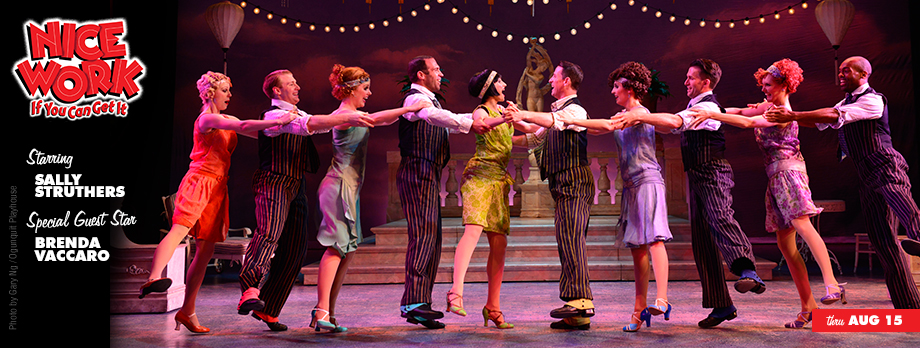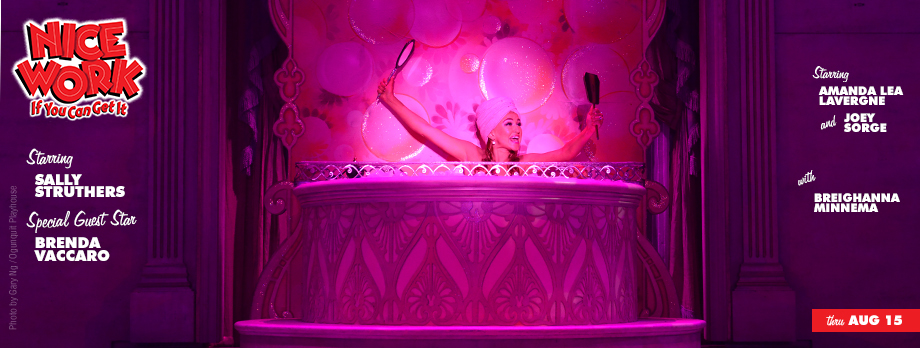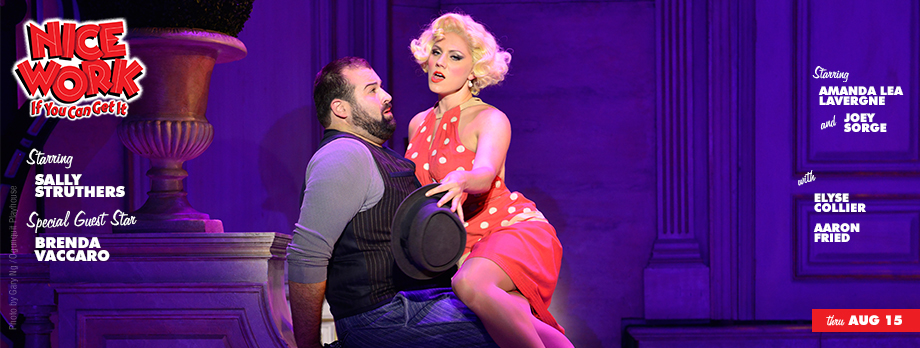About
Fueled by Gershwin, girls, and gin, Nice Work If You Can Get It takes place in the year 1927 towards the end of the tumultuous Prohibition Era. After nearly a decade of the Prohibition Law being in effect, many U.S. citizens were fed-up with the economic consequences of the alcohol ban and took matters into their own hands by making a criminal livelihood in the “bootlegging” business. The resulting increase of unlawful production and sale of liquor, the proliferation of speakeasies, and the accompanying rise in gangster violence and other crimes led to waning support for Prohibition by the end of the 1920s.
Events leading to Prohibition began during the 1820s and ’30s when a wave of religious revivalism swept the United States, resulting in increased calls for sobriety and self-restraint. By the turn of the 20th century, temperance societies were a common fixture in communities across the United States. Women played a strong role in the abstention movement, as alcohol was seen as a destructive force in families and marriages. Carrie A. Nation, a radical American temperance advocate also infamously known as the “saloon-smasher,” would march into saloons and proceed to sing, pray, hurl biblical-sounding vituperations, and smash the bar fixtures and stock with a hatchet. Nation is cited as an inspiration for Nice Work’s character Duchess Estonia Dulworth, played by Sally Struthers in the Ogunquit Playhouse production.
Though many women were associated with the temperance movement, some women entered the bootlegging business and were far more successful than their male counterparts due to state laws that made it illegal for male police officers to search women. The alcohol smuggling syndicates took advantage of these legal loopholes, recruiting women as bootleggers or to ride along during car transport to reduce searches and robberies.
Tony Award-winning author Joe DiPietro was approached by the Gershwin estate to write a musical comedy using Gershwin music that harkened back to the musicals of the 1920s which the famous duo collaborated. DiPietro had always been a huge fan of the screwball comedies of the ‘20s and ‘30s, featuring bootleggers, playboys, dowagers, and chorus girls and was inspired by the plotline of the Gershwin musical Oh, Kay!, another farcical tale about a wealthy playboy who falls in love with the sister of a bootlegger on the eve of his wedding. In his adaptation for Nice Work, DiPietro decided to combine the characters of the bootlegger and the sister into the spunky female rum-runner, Billie Bendix. DiPietro used Guy Bolton and P.G. Wodehouse’s book for Oh, Kay! as a jumping off point for a mistaken-identity and false-identity plot that blends comedy, farce, romance, and Prohibition-era lawbreaking. In writing the book, DiPietro stated that his goal was to “write a show that is in their voices and that they would love if they happened to walk into the theater.”
Nice Work If You Can Get It was initially produced with the title They All Laughed! in 2001 at the Goodspeed Opera House with a book by Joe DiPietro. A workshop of the musical, then renamed Heaven on Earth, was held in November 2007, featuring Harry Connick, Jr. and Erin Dilly. The final product, Nice Work If You Can Get It, opened at the Imperial Theater on Broadway on April 24, 2012, starring Matthew Broderick and Kelli O’Hara. The musical was nominated for ten Tony Awards (winning two) in 2012. Now, the Ogunquit Playhouse is one of the first regional theaters in the country to produce this delightful show. Nice Work recalls the golden age of American musicals, complete with extravagant dance numbers, glamorous Broadway costumes and a brilliant catalog of George and Ira Gershwin’s most beloved songs, including “But Not For Me,” “Let’s Call the Whole Thing Off,” “I’ve Got a Crush on You” and “Someone to Watch Over Me.”





